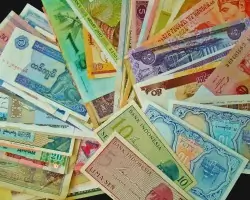Home » Money and Utilities » Money and Utilities News » Currency Charges axed by Banks – what it means to you

Cheaper currency on the cards
Charges made on travellers and holidaymakers by some banks when they buy foreign currency have been axed following pressure from the Office of Fair Trading (OFT).
Also the charges that they levy on debit card transactions, which can include a foreign transaction fee of around 3.0%, should now be clearly itemised on monthly statements.
The firms who agreed to remove additional charges levied when purchases of foreign currency are made are Lloyds, Barclays, RBS, Santander and the Co-op who made charges of between 1.5 and 2% if customers used their debit cards to buy currency in the UK before going on their trip. Nationwide, HSBC, First Direct and Halifax Bank of Scotland were not impacted as they did not charge these fees.
During their investigation the OFT identified that travel money companies made £1bn a year from such charges whilst Consumer Focus reckon the changes would trim £20m from this.
So what is the impact?
The banks affected charged a ‘penalty' to their customers who had the audacity to buy their currency from a exchange dealer, supermarket such as Tescos, store such as Marks and Spencer, or alternative bank. As this fee was often in the region of 1.5% – 2% (normally though with a maximum charge of £4.50) this could mean a ridiculous charge of £4.50 on a transaction of £225 or more.
That meant that unless the exchange rate quoted was substantially better elsewhere often it was easier to use your own bank and accept a substandard rate.
The changes meant that its easier to compare rates and find the best deal without the worry of extra charges being levied.
Mark Bower, Managing Director of MoneyMaxim said today ‘For the big banks these fees were not just a money earner in their own right, but they created an impression in customers minds that it was not worth shopping around. With such marked differences in the rates offered by both specialist moneybrokers and new entrants into the market like the supermarkets and those available from high street banks customers can make worthwhile savings on fairly modest sums. There are now a number of comparison services around which allow you to track down the best travel money rates.
Until recently the only way to avoid the charges was to use a hole in the wall machine to withdraw cash which can then be used to buy the currency, but this left little option but to cough up if you wanted to buy online.
Its not even as if the banks ‘cost structure' for offering foreign exchange services is that different from the specialists, as most sizable transactions through branches now require pre booking and are delivered to a local branch for collection, a very similar model to the home delivery service currency service offered elsewhere.
We use cookies and other tracking technologies to improve your browsing experience on our website, to show you personalized content and targeted ads, to analyze our website traffic, and to understand where our visitors are coming from. By browsing our website, you consent to our use of cookies and other tracking technologies.